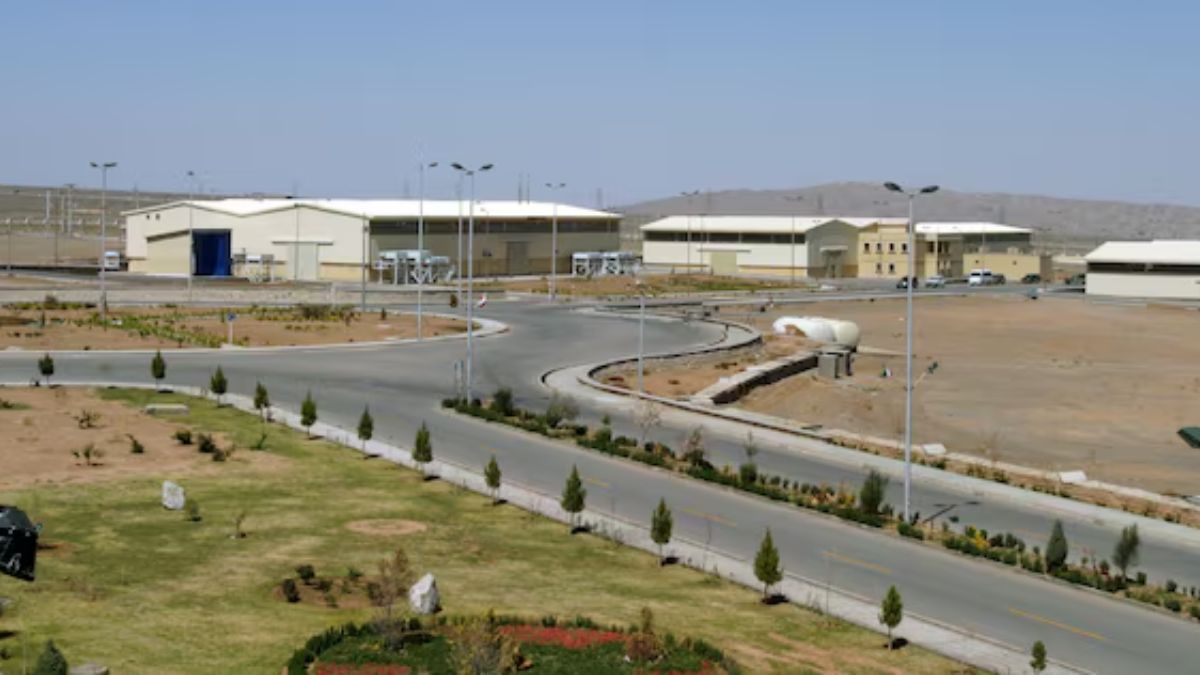The Israeli Defence Forces (IDF) is claiming that it has significantly damaged Iran’s Natanz nuclear site.
Israel on Friday had launched massive strikes on Iran’s nuclear and military facilities.
The development came a day after International Atomic Energy Agency (IAEA) accused Tehran of failing to live up to its non-proliferation obligations.
But what do we know? Can this lead to a radiation leak? How dangerous is it?
Let’s take a closer look
What do we know?
According to Iranian state TV, Israel struck the Natanz nuclear site multiple times on Friday.
IDF spokesman Brigadier General Effie Defrin claimed Israel has “significantly damaged” Natanz. The operation was “still in the beginning” and the plan is a ‘gradual one’, he added.
The Natanz nuclear site is around 225 kilometres south of Tehran. It is the country’s main enrichment facility. Its existence first was revealed in 2002 by an exiled Iranian opposition group.
It is being reported in Israeli media that IAEA chief Rafael Mariano Grossi told Israeli President Isaac Herzog that the Natanz facility was “seriously damaged.”
The IAEA had earlier in the day confirmed that the facility in Isfahan province had been hit in Israeli strikes.
Grossi had Cars said that the agency is closely monitoring the deeply concerning situation in Iran.
Grossi also said that the IAEA was in touch with Iranian authorities regarding radiation levels as well as its inspectors in Iran.
Can this lead to a radiation leak?
Not at the moment.
Experts say even a direct hit to nuclear material is unlikely to cause a major incident or radiation leak.
What is more likely in case of a strike is a leak within the facility.
“It all depends on the configuration of nuclear material stored at the facility. If the nuclear material and explosives are kept separately, there isn’t much danger of an explosion or leak, even if there is a direct hit on the nuclear material,” Anil Kakodkar, ex-head of India’s Department of Atomic Energy, told The Indian Express.
“The strikes are likely to result in a dispersal, or the spread, of nuclear material into the environment. But this is likely to remain restricted within the facility or the place of the attack,” he added
He said a “radiation leak” rather an “organised explosion” even if Israel hit nuclear weapons.
What are authorities saying?
Iran’s Atomic Energy Organisation said in a statement that while parts of the Natanz nuclear enrichment facility were damaged during the Israeli strikes, no nuclear radiation or chemical contamination has occurred.
Behrouz Kamalvandi, spokesperson for the Iran Atomic Energy Organisation, was quoted as saying, “The damage to the Natanz uranium enrichment facility was limited to the above-ground portion”.
“The Natanz and Fordow nuclear facilities are located deep underground.”
But Grossi released a statement calling the attack on Natanz “deeply concerning”.
“I have repeatedly stated that nuclear facilities must never be attacked, regardless of the context or circumstances, as it could harm both people and the environment. Such attacks have serious implications for nuclear safety, security and safeguards, as well as regional and international peace and security,” Grossi wrote.
With inputs from agencies
)